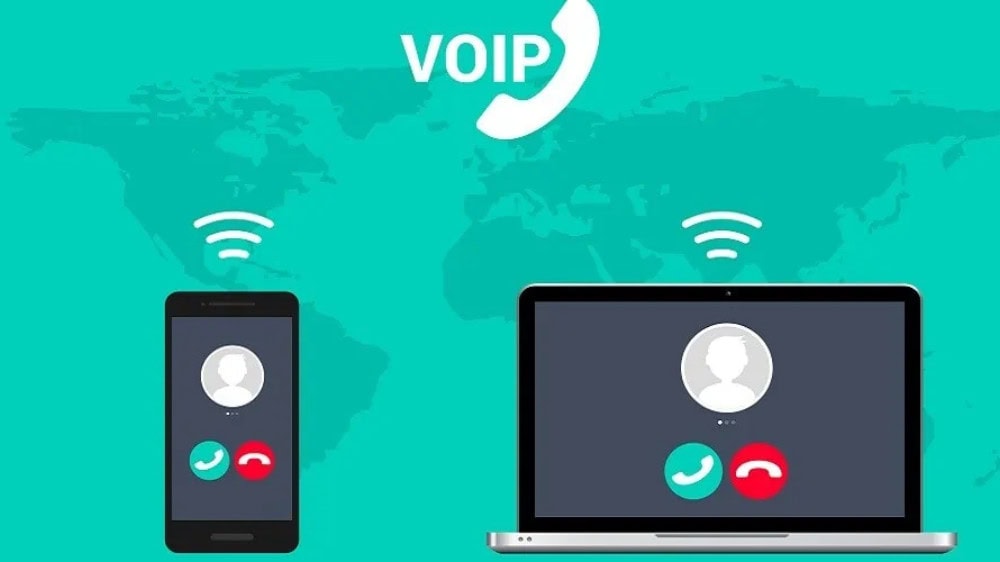The ROI of a VoIP Phone System

The ROI of a VoIP Phone System includes unified connectivity, flexibility, scalability, and ease of maintenance. Telephony has been an essential part of business technology since the invention of the telephone, enabling organizations to conduct business and communicate with others.
However, a legacy VoIP phone system is standalone, meaning that managing, maintaining, and upgrading the system is separated from the other pieces of today’s workplace technology. This is where cloud computing and unified communications are necessary for organizations’ communications.
The ROI of a VoIP Phone System offers significant advantages. It streamlines communications, is scalable, allows organizations to concentrate on their communications better, and provides a VoIP phone system to end users no matter where they are.
VoIP offers a great return on investment
VoIP streamlines communications by consolidating various communication channels—such as voice, video, and messaging—into a single, easy-to-manage platform. Its scalability ensures that as a business grows or changes, the system can effortlessly expand or adapt without significant additional costs. This flexibility allows organizations to focus more on improving communication strategies and less on managing multiple, disjointed systems. Additionally, a VoIP phone system empowers end users by providing reliable access to communication tools from any location, ensuring seamless connectivity for remote and on-the-go employees.
1. Unified Telephone System
VoIP allows organizations to build a communications ecosystem rather than separate standalone communications systems. With VoIP, you connect many different systems, software, and devices on the same network, and they all work well together.
It works in one extensive ecosystem instead of buying and maintaining ten different standalone systems. This means that maintenance, support, and upgrades are done on one network and only one system, making the job easier for the staff.
2. Scalability and flexibility
VoIP is very flexible. Organizations can respond to business needs within a single system without expensive upgrades. The ROI of a VoIP Phone System is evident as it allows organizations to deploy hybrid and multi-site environments that include a legacy system in one place and a cloud-based business phone system in another that is routed through a single, unified call routing system for all standard VoIP phone system capabilities.
If the power or Internet is not working correctly in a building, VoIP and softphones permit employees to either go to their residence or find another place to work as long as it has a secure and stable Wi-Fi connection.
3. Remote work tool
There is an increased focus on communicating with employees, clients, and customers, whether in the office or working from home. Employees who need a phone can connect it to their company’s VoIP system in seconds. You can hook up with a switch and get full connectivity.
A growing feature of unified communication systems also requires no additional hardware. It eliminates the cost of hardware. With smartphones and apps on mobile phones, you can avoid the most significant cost factor.
4. Less headache and easier maintenance
Upgrading older systems can be costly because of the significant component of hardware in those systems. The latest and greatest technology is easy to fix. The ROI of a VoIP Phone System is clear when considering that it is much cheaper to update things and replace them with new ones than trying to keep an old system running.
Conclusion
The ROI of a VoIP Phone System is compelling for businesses seeking to enhance their communication infrastructure in today’s dynamic work environment. By offering unified connectivity, flexibility, and scalability, VoIP systems streamline communication and empower organizations to respond swiftly to evolving market demands. This integration consolidates various channels—voice, video, and messaging—into a single platform, fostering collaboration and improving productivity among teams. The scalability of VoIP allows organizations to expand their capabilities seamlessly, adapting to fluctuating workforce needs without incurring exorbitant costs. This adaptability is crucial in maintaining a competitive edge, especially as businesses face rapid changes and challenges in the market.
Moreover, VoIP systems cater to the growing trend of remote work, enabling employees to connect from any location, which enhances engagement and collaboration. The elimination of hardware requirements reduces upfront costs, making VoIP a cost-effective solution for organizations of all sizes. Additionally, the reduced maintenance headaches associated with VoIP technology further solidify its value. With easier upgrades and lower operational costs, companies can remain current with advancements while focusing on their core operations. Ultimately, investing in a VoIP phone system not only optimizes communication strategies but also drives long-term success by ensuring that businesses remain agile and responsive to the needs of their clients, customers, and employees.
